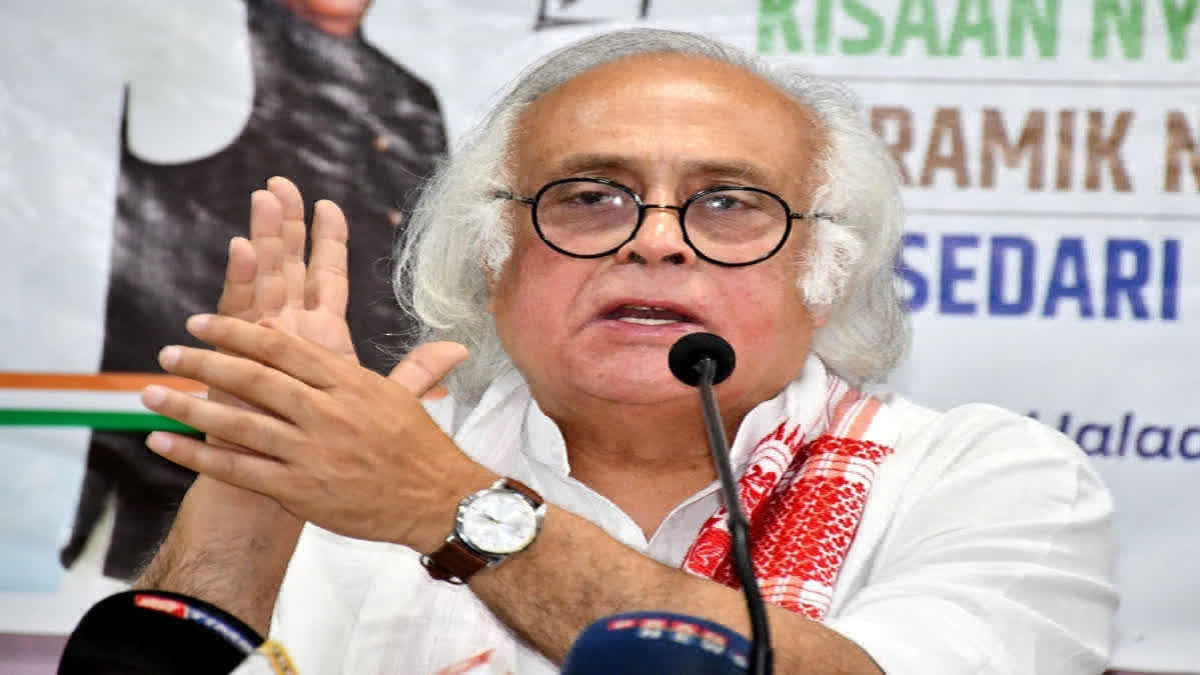New Delhi: Asserting that India is in its "most precarious and difficult" economic situation in many years, the Congress on Wednesday said wage stagnation, inflation and inequality are undermining consumption growth in the country.
These chokepoints will strangulate growth in the years to come if not taken seriously now, Congress general secretary in-charge communications Jairam Ramesh said in a statement.
He said that for the past three decades, the India growth story was one of consumption growth – the story of crores of families escaping poverty and entering the middle class, newly able to afford products and acquire assets.
It was the sign of a thriving economy, one that was growing rapidly and distributing its gains widely, the Congress leader said.
In the last 10 years, India's consumption story has now gone in reverse swing and emerged as the biggest pain point for the Indian economy. India Inc. has now joined the chorus, with a leading CEO even going so far as to say that the middle class in India is "shrinking", he said.
Ramesh said the reasons for this slowdown are clear – stagnant wages, high inflation and inequality.
Elaborating on these, he said multiple data sources, including the government's own official statistics such as the recently released Annual Survey of Industries (ASI) 2022-2023, have shown clear evidence that workers can buy less today than they could 10 years ago.
"Worryingly, these stagnant wages may have to do with a decline in productivity for India's labourers. As labour productivity falls and real wages stagnate, families will have less additional income to dedicate to consumption," the senior Congress leader argued.
On high inflation, Ramesh said that as Dr Viral Acharya, former deputy governor of the Reserve Bank of India, has noted, the last decade has seen the emergence of five big conglomerates, including the Adani Group, who are building monopolies in 40 sectors, including cement, chemicals, petrol and construction.
In 2015, when a common man used to purchase Rs 100 worth of goods, he was paying 18 per cent to the industrialist owner but today, he is now paying Rs 36 in profits to the same owner, he claimed.
The price rise of the last few years is directly attributable to the government's cronyism and patronage of these conglomerates, Ramesh alleged.
